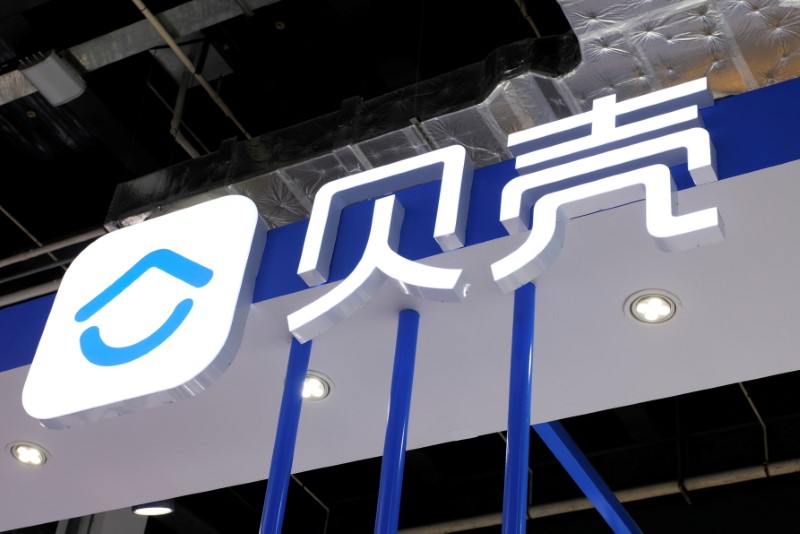By Yingzhi Yang and Brenda Goh
BEIJING (Reuters) - Fretting about unprecedented regulatory heat for China's tech sector, some companies are no longer waiting for any official reprimands that may or may not be forthcoming.
Instead, eager to pre-empt authorities, they've decided to 'self-correct', imposing restrictions on or even walking away from their own businesses.
KE Holdings, China's largest platform matching buyers and sellers of real estate, is one such example.
This year it quietly shut down its VIP services that promised fast-turnarounds for property sellers in exchange for exclusive listings and which had featured prominently on its popular Lianjia and Beike apps, two people familiar with the matter said.
The decision to pull the plug on the VIP services was not prompted by a regulatory request but KE, which is currently the subject of an antitrust probe https://www.reuters.com/world/china/exclusive-china-launches-antitrust-probe-into-tencent-backed-property-broker-ke-2021-05-25, had wanted to move "proactively" and "voluntarily", said the people who declined to be identified as KE has not publicised its actions.
"It wasn't a big business but it had the potential to become one," said one of the sources.
KE said in a statement to Reuters that any business adjustments on its part "were in compliance with government regulations and aimed at providing better services."
So-called 'self-correction' is promising to become a major corporate trend as the government tears into regulatory norms to promote socialist values and rein in what critics have called reckless capitalist expansion. The term is increasingly used by state media and is similar in tone to 'self-criticism' - a practice encouraged by China's Communist Party.
THE NEW NORMAL
One of the most high-profile examples has been Tencent Holdings (OTC:TCEHY) Ltd's decision this month to introduce new limits https://www.reuters.com/technology/tencent-falls-after-china-media-calls-online-gaming-spiritual-opium-2021-08-03 on kids' time spent on "Honor of Kings", its most popular video game. That came just hours after its shares were battered by a state media article which described online games as "spiritual opium".
"Everyone is trying to get a clear read on the new normal and is resetting as fast as possible," said Jeffery Towson, host of the Asia Tech Strategy podcast and former professor of investment at Peking University. "Nobody is doing 'move fast and break things' anymore. Nobody is using their market power too aggressively. Everyone is aligning their strategies more closely with the government's priorities," he said.
While Chinese regulators have clamped down on a range of sectors from property to cryptocurrencies to private tutoring, the tech sector has come in for some of the harshest measures to date.
Ant Group's mega listing was scuppered at the eleventh hour last year, while regulators in July ordered newly listed ride-hailing giant Didi Global Inc to take down its app from app stores in China.
A slew of antitrust probes have also been launched, fines imposed, including a record $2.75 billion antitrust penalty for Alibaba (NYSE:BABA) Group Holding, while new guidance and regulations have been introduced or are in the works.
Other 'self-correcting' companies include NetEase (NASDAQ:NTES) Music which announced last month it would not enter into exclusive contracts, a move that came after Tencent was barred by China's market regulator from entering into exclusive music copyright agreements.
Twitter-like Weibo (NASDAQ:WB) also pulled an online list that ranks celebrities by popularity after a state media report critical of celebrity culture.

"The brutal growth, disorder and greed of Chinese tech companies have caused a series of problems," said Xie Pu, founder of Chinese tech website Techie Crab.
"This kind of 'self-correction' will bring a relatively healthy competitive environment."